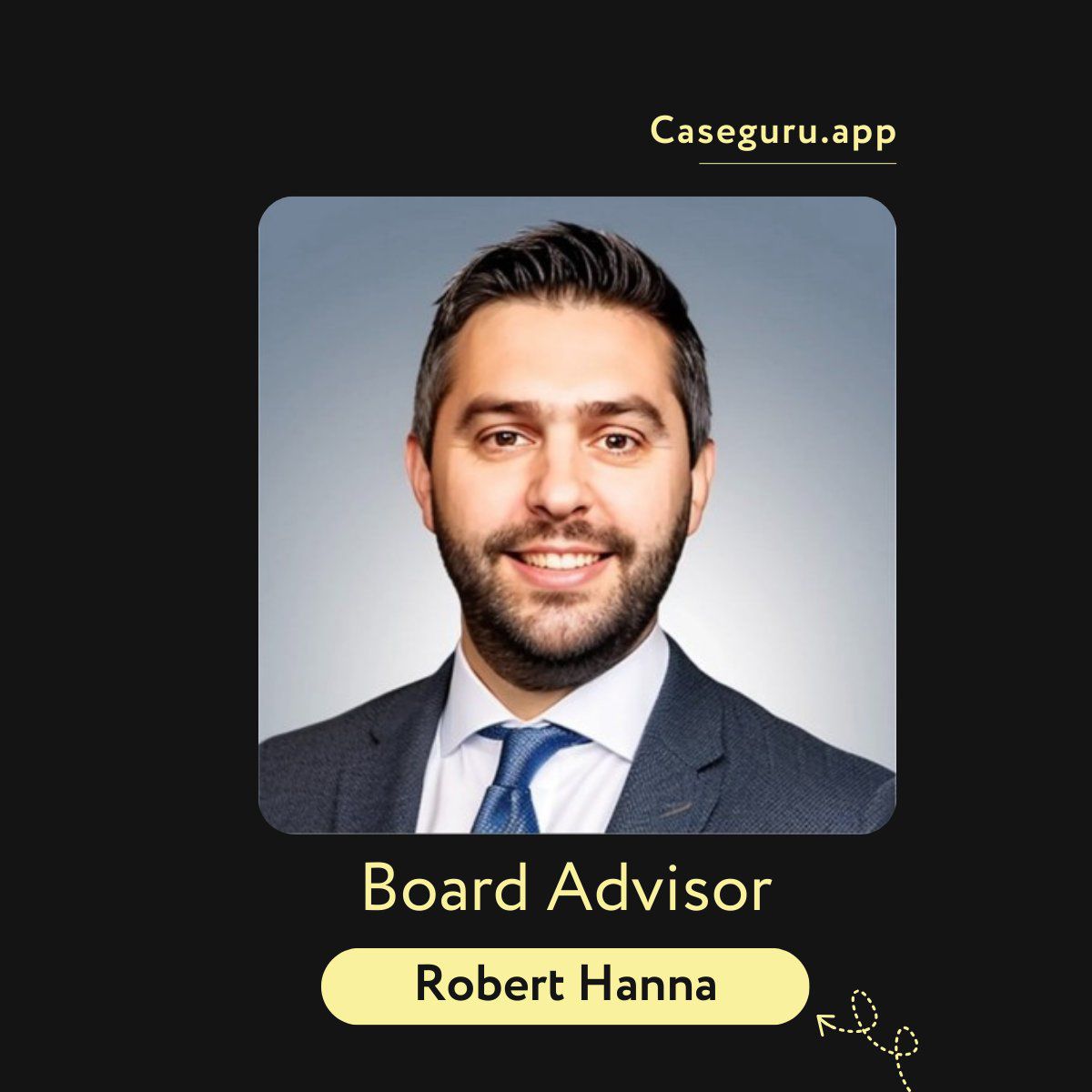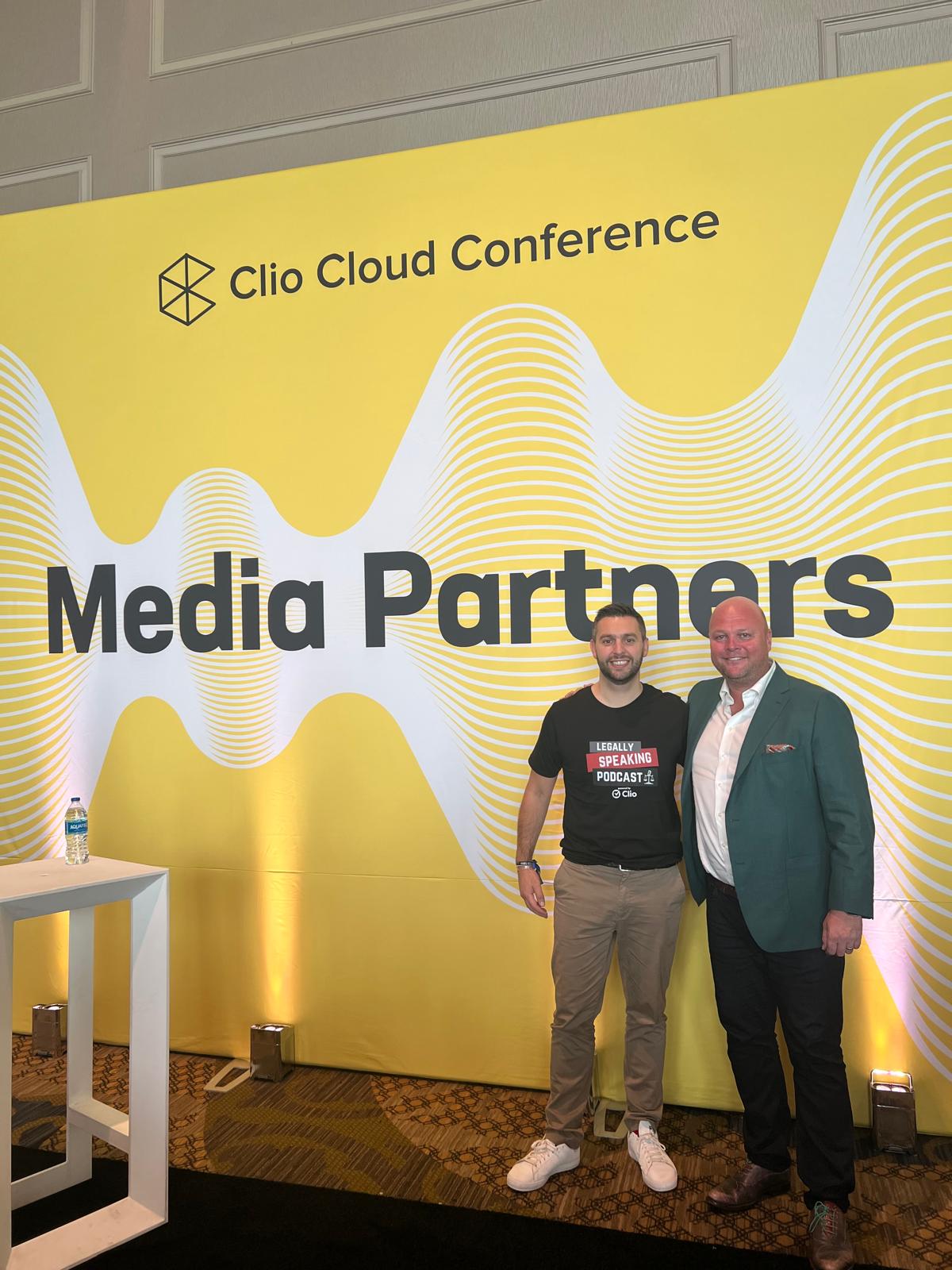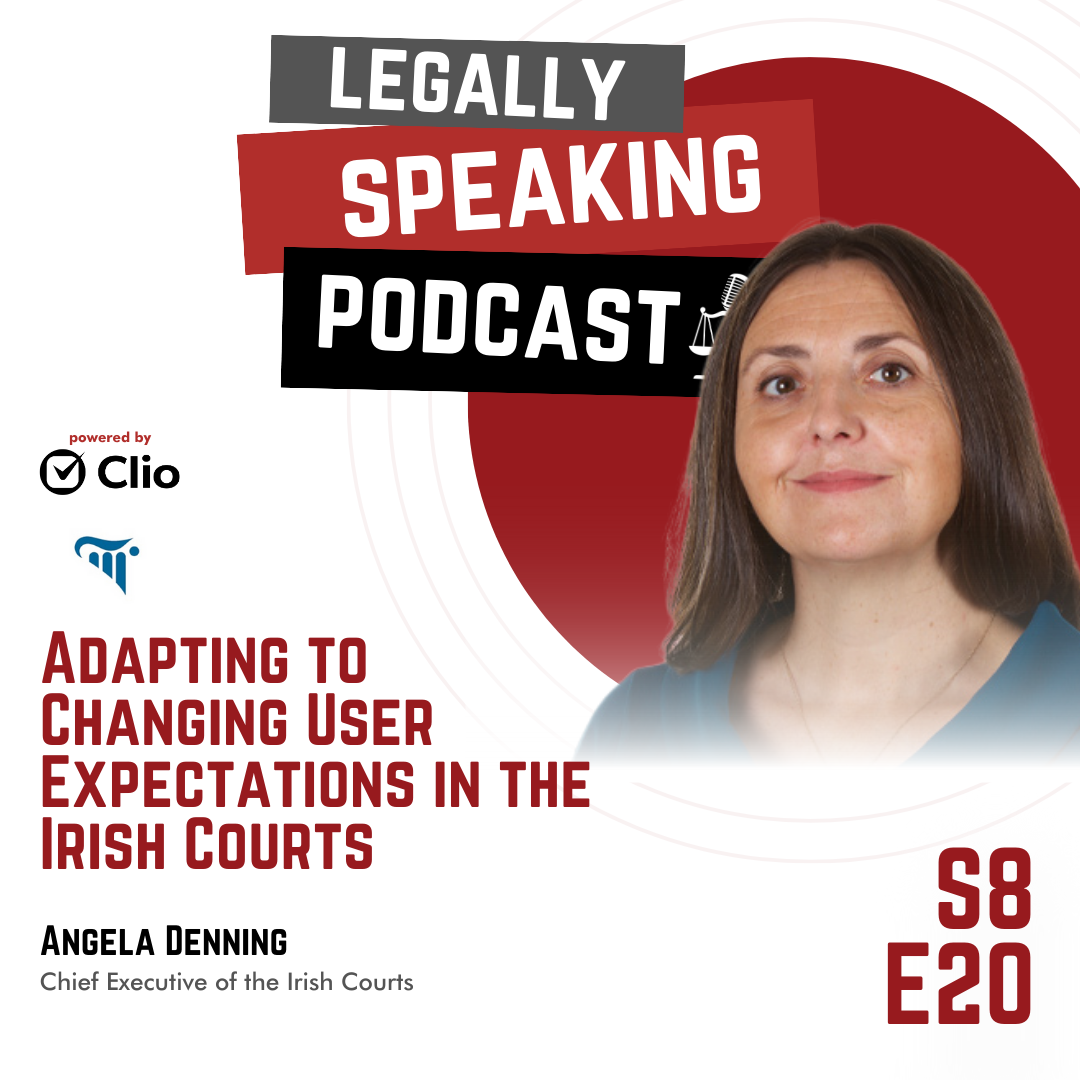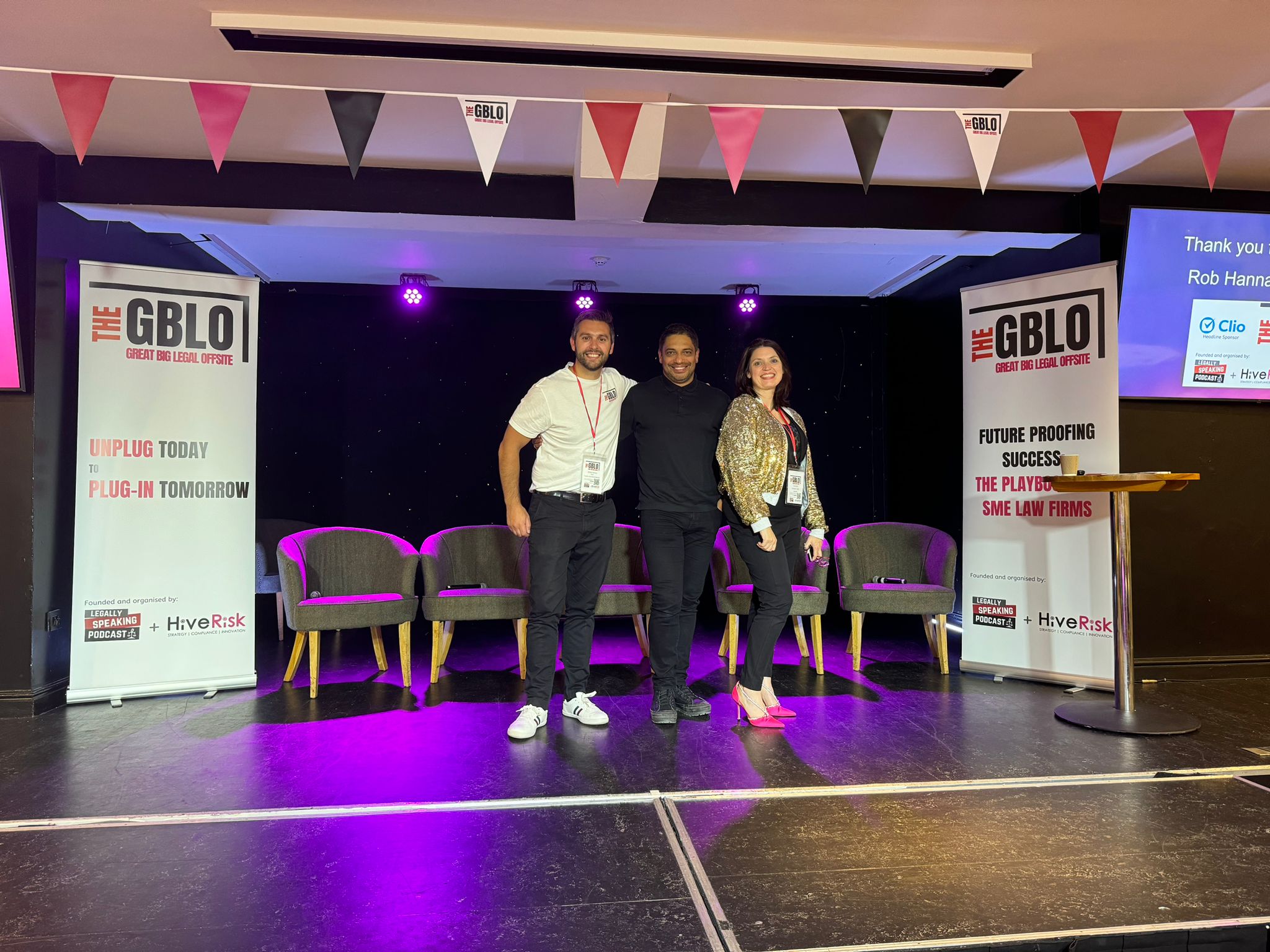
Our Host has joined the Advisory Board of Caseguru!
Congratulations to Our Host, Robert Hanna, on joining the Advisory Board of Caseguru!🌟 Finding a lawyer

The Legally Speaking Podcast are delighted to bring you all the ‘A Graduate Recruiters Guide’ Miniseries, featuring Paul Gascoyne from Shearman & Sterling.
Paul is a Senior Recruitment Manager at Shearman & Sterling with over 10 years of experience in recruiting graduates and school leavers. Prior to this Paul worked at BPP Law School as a Senior Outreach Marketing Manager. Paul is renowned for creating excellent resources for aspiring lawyers.
The Miniseries will delve into how aspiring lawyers can master the training contract & vacation scheme application process, from researching law firms, getting the right things in your application and also dispelling some of the classic myths that many believe to be true.
In our third and final episode, our host Rob Hanna and Paul discuss myths surrounding law firm applications, including:
00:00 Robert Hanna:
And we are back again. Welcome back, Paul for the final time. Great to be back. Absolute pleasure. So for our final episode, we are talking about all the myths and things that don’t actually matter when it comes to law firm applications. So Paul, you’re the expert here. Firstly, what are some of the myths that people believe to be true about training contracts and vacation scheme applications?
00:29 Paul Gascoigne:
So really good question. And I think, again, a week doesn’t go by where I’m not well inundated with questions about candidates thinking that there is some kind of disadvantage, and the law firms have not pushed this information out. But for some reason, candidates get these things into their head about why they might be rejected. And ultimately, I think what candidates need to think is that, law firms are just looking for the best candidates. If you can convince a law firm that you were the best candidate, it doesn’t matter. About lots of the situations that people are in. So for example, sometimes people think I’ve studied outside of the UK, I’m an international student, will I be at a disadvantage? No, not at all. People come from all over the world to practice law in London, that’s absolutely common. So that’s not an issue at all. Will that be disadvantaged? If I’ve already graduated? No, not at all. We’re looking for the best people, the best people aren’t going to be limited to second year law students, final year, no more students. So again, you know, those types of things don’t matter. This is the big one, if I had known, if I have not gone to a Russell Group University. And I think this is part of a confidence issue. One of the things I always say to candidates is have the confidence to apply if you meet the minimum criteria. And usually law firms are looking for a levels and undergraduate degree, if you meet the minimum criteria, then apply. Ultimately, what we find is that most of the applications do come from people who’ve gone to Russell Group Universities. I think part of that is all about confidence. So if you are at a non Russell Group University and you meet the criteria, then apply. Law firms are not screening people based on the university that they go to. The screening is on academics, but they’re not screening based on the university. And I think that is one of the big myths, which hopefully gradually is being debunked. The other thing that people think is there’ll be disadvantaged did this study part time. If anything, that’s an advantage, because usually people have studied and worked. And that’s much harder to do. So, you know, that’s another question that I face on a weekly basis, which isn’t true. And the other one, which is very common, if I’ve not studied law, you know, law is not one of these professions where you need to study law academically. And lots of people in the profession will say that the law degree isn’t really that good is a crucial thing, when it comes to actually being a lawyer. The skills, the knowledge is actually very different. And that’s where you go to law school. And if you are a non law student, then you do the GDL. Or in the future, it’ll be a GDL equivalent with the SQE coming in. So, again, those things don’t matter. And the other question, if I’m a career changer, again, lots of positives for people being a career changer. One of the hardest things about recruiting people directly out of university, is they don’t have any work experience. And if you’re recruiting second year law students, if someone has got two weeks work experience, that can be a lot. If someone has been a well, has worked in, in industry for a year, two years or 10 years, then they know how the working world operates. So all of those concerns that you might sometimes have with a second year, undergraduate you don’t have. And again, it’s all about playing to your strengths, all of these things that people think could be a disadvantage, could all be flipped into a positive.
03:38 Robert Hanna:
Yeah. Wow, wow, you’re talking about getting a question and answered correctly. And in that, thank you. I think what I’m gleaning from that is do just be yourself. If you meet the criteria, go for it. Believe in yourself, have that confidence, that self belief, have positive people around you, and have those applications made, don’t give up on something. Because if you do, one thing’s for sure; you miss 100% of shots you don’t take right. So let’s make sure we encourage people to do that. Okay, so tell us more about the common things you see in applications that don’t need to be included or even matter.
04:14 Paul Gascoigne:
Well, there’s quite a lot, there’s quite a lot around language skills. And I’m not saying language skills are irrelevant. But the reality is that most people conducting their business, they’re English, and sometimes candidates who might be able to speak a different language dedicate so much of the application to that when there’s actually a small section on the application form that will tell us what languages you speak. So things like that. I think everyone has their own individual. The individual thing that they kind of prioritize in the application form, and actually if you’re not prioritizing the right thing, and it doesn’t really make sense to the reader. But there’s not I would say apart from languages, there’s no one thing. I think there’s lots of different reasons than there’s lots of different justifications that people put in their application form. Some of it makes sense. Some of it doesn’t.
05:04 Robert Hanna:
Yeah, no, absolutely. And talking about things that don’t necessarily matter, are there things that people get worried about that aren’t necessarily to worry about? There’s no need to worry about.
05:16 Paul Gascoigne:
Yeah. So if you meet the minimum criteria, then that’s okay. Some people get paranoid about, like individual modules, or the first year module grades. You know, we’re quite open, we say, actually, if you do a law degree, then contract law is important. But it doesn’t mean to say that you need to get, like 65 or above in every single module. You know, if you’ve done a reset at some point in your life, again, that’s not going to, it’s not going to stop your application fromprogressing. Some people get a little bit paranoid about what when they should apply. So whether applications are rolling or non rolling. And ultimately, if there’s a deadline, and it’s a non rolling application, it doesn’t really matter when you apply, the law firm isn’t going to cut you out. Because you know, you applied a week later than somebody else, even though you are better candidates. So all of these, all of these things people sometimes get a little bit paranoid about and start to make bad decisions. So, for example, with the deadlines, I need to rush my application to get it in as soon as the applications open. And then those candidates can sometimes be saying, well, I’ve now got some more work experience, I’ve now got my grades from university, and then almost it’s too late, because we can’t add anything into an application once it’s been submitted. So I don’t think there’s any rush to submit application. So you know, it’s just another example that ultimately, law firms aren’t trying to trick people. If they tell people that there’s a deadline, it’s a non rolling application, then that’s true. If they say that these are minimum criteria, then that’s true. If they say we’re looking for this type of work experience, it’s true. So people can believe what a law firm says in terms of you know, what they’re looking for on the application through the application process.
06:52 Robert Hanna:
Absolutely. And we say, as well, we should never discourage people, you know, rejection is just redirection, you know, it’s part of the application process. And there’s a lot of myths about I’ve been rejected by one firm, I’m never going to get another firm. So what would you say in terms of that feedback? Or if people are rejected to give them that confidence? And maybe how to kind of get feedback to be kind of more successful in other applications?
07:15 Paul Gascoigne:
Yeah, I’m really glad you brought that up. Because I hate it when people get rejected, and they don’t think they’re a good candidate. People get rejected on the smallest of margins. There are so many people applying for, for law firms. I think at the moment in the UK, it’s around 100 applications per training, contract vacancy. And ultimately, what people need to do is actually reevaluate, think, you know, what, how far did I get through the process? I think if every candidate has been rejected at application stage, for every single law firm, then there’s probably some fundamental issue on the application form. And I think it’s the case of going back to basics. I think once people start getting past that application stage, and that is by far the hardest hurdle to get over the application stage, then you know, there’s something good. So maybe it’s more interview, practice, maybe it’s more work experience. But I think once you start getting past the application stage, then you know that you are good candidates. And I always say to candidates who are on vacation schemes, even if they don’t get training contracts, I know that you’ll get a training contract within the next 18 months. Because when we review and we look back at candidates who were successful and weren’t successful on our vacation schemes, they always end up with a training contract. Sometimes it’s just more experience, if it’s someone’s first vacation scheme. And it’s maybe the first time that this they’ve done any work experience in a law firm, it’s quite difficult, you might not be prepared for the types of questions that come up, and you might not be prepared for the types of assessments which law firms use, there’s no reason why you can’t regroup, dust yourself down and come back as a stronger applicant. And I would even encourage people to reapply to the law firm that they’ve been rejected at. We’ve got quite a few trainees now who previously were rejected, came back with a stronger application and went through and was successful and the nail trainees.
08:57 Robert Hanna:
There you go, folks, then what a great case study that is, you know, I always say failure is just feedback. Failure is not final unless you choose for it to be. If you refuse to give up, then the right thing will happen. It will land eventually. So thank you so so much, Paul. We’ve got through so much content over the last few weeks when it comes to all things, training contracts and getting work experience. What I would just like to ask you, is there any final words of advice you would have for the next generation of lawyers, aspiring lawyers? And how can people get in touch with you if they have any follow up questions?
09:29 Paul Gascoigne:
Well, my advice I often give is have the competence to apply. I think that’s a big thing. I think lots of people, you know, self select out when they don’t need to. And as you said, if you don’t buy a lottery ticket, you’re never going to win. So have the competence to apply. In terms of keeping in touch people can follow me on LinkedIn, I’ve got no issue with that. I’m Paul J Gascoigne on LinkedIn, and people can follow Shearman. So we’ve got a shameless turning UK graduates, which is our LinkedIn page, specifically for people looking for training contracts or vacation schemes that Shearman And that’s really where putting out most of the the information and advice that I get.
10:05 Robert Hanna:
Well thank you so, so much Paul. It’s been an absolute pleasure having you on the show over recent weeks that brings to a close the end of A Graduate Recruiters Guide Miniseries here on the Legally Speaking Podcast. But from all of us on the show, thanks so much once again, Paul, but for now, over and out.
You may also tune in on Google Podcasts, Apple Podcasts, Spotify, or wherever you get your podcasts!
Give us a follow on X, Instagram, LinkedIn, TikTok and Youtube.
Finally, support us with BuyMeACoffee.
🎙 Don’t forget to join our Legally Speaking Club Community where we connect with like-minded people, share resources, and continue the conversation from this episode.
Sponsored by Clio – the #1 legal software for clients, cases, billing and more!
💻 www.legallyspeakingpodcast.com
📧 info@legallyspeakingpodcast.com
Disclaimer: All episodes are recorded at certain moments in time and reflect those moments only.

Congratulations to Our Host, Robert Hanna, on joining the Advisory Board of Caseguru!🌟 Finding a lawyer

Congratulations to Our Sponsor, Clio, on announcing their Series F funding value, that values Clio at

Join us as we take a deep dive into the technical revolution happening in the Irish
Average Range of Salaries *These are paid at the £/$ exchange rate and so are prone

Event Overview:In 2024, the Legally Speaking Podcast and HiveRisk founded a unique law firm leadership strategy
I’m thrilled to share the highlights from our exclusive “LegalTechTalk Uncovered” miniseries. Join me as I

*DISCLAIMER* All episodes are recorded at certain moments in time and reflect those moments only. The podcast does not support or associate itself with any inappropriate behaviour or actions that may have occurred after recording.
Website by Virtual Insanity LLC